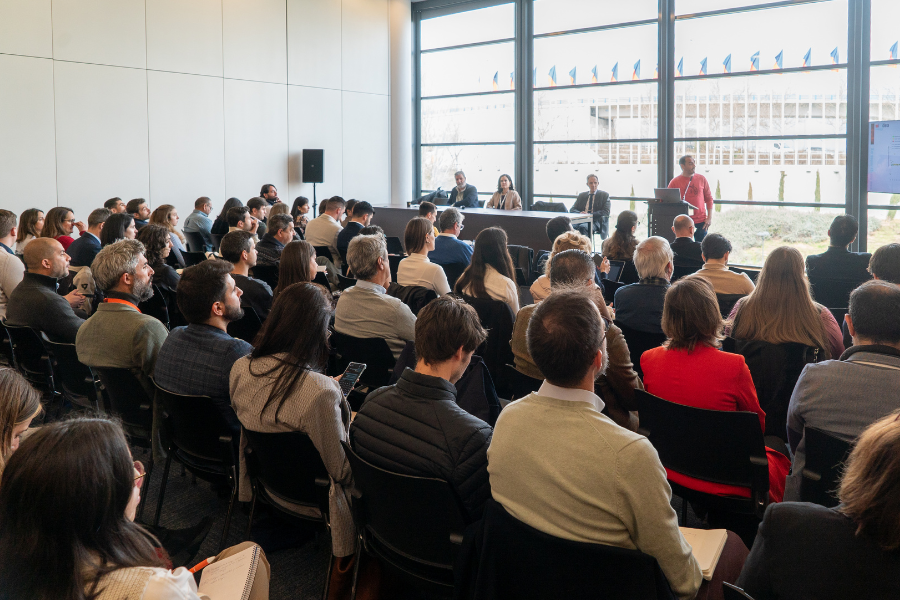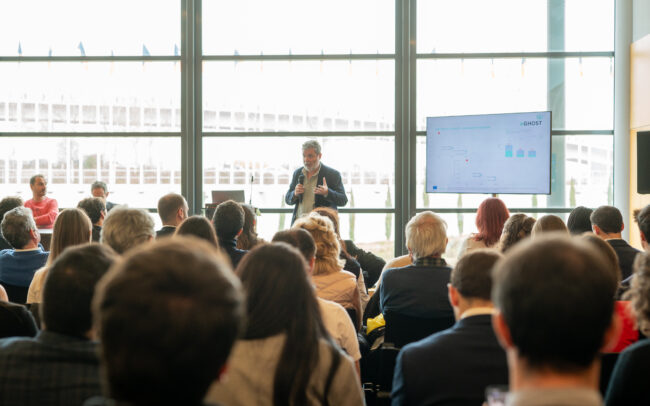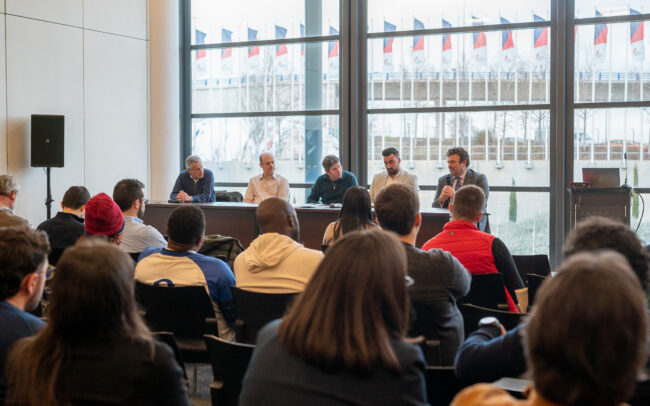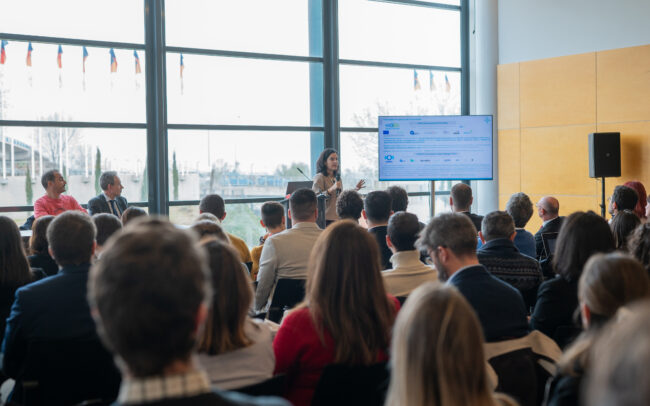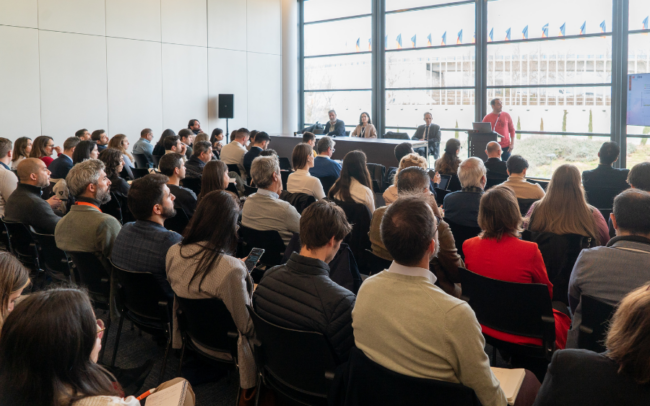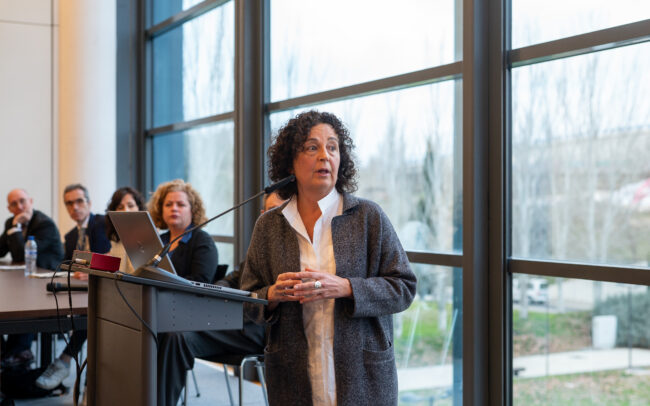IMDEA Energy connects research and industry in a series of conferences at the Genera 2024 Trade Fair
IMDEA Energy has once again participated in the International Energy and Environment Fair GENERA, with the organization of a series of conferences that took place on February 7 at the IFEMA North Convention Center and brought together speakers from the scientific and industrial sectors.
The first of the round tables focused on the new materials being developed for proton exchange membranes and how they can have an impact on improving the operation of electrolyzers that produce green hydrogen and fuel cells that consume it to generate electricity, as well as on the cheapness of the materials and the difficulties involved in working with critical materials.
The debate, moderated by Félix Marín, head of technology transfer at IMDEA Energía, was attended by Catalina Biglione, senior researcher at IMDEA Energía; Teresa Pérez, Professor at the University Carlos III of Madrid and participant in the H2MOF project; Sandra Herrero, head of the H2GREEM R&D laboratory; Berta Moreno, Senior Scientist at Repsol; and Javier Dufour, Research Professor at IMDEA Energía and coordinator of the SH2E project.
The second day also dealt with hydrogen, but focusing on the perspective of sustainability and eco-design, taking into account the critical materials, how to extend the life of those that work best and the state of maturity of the technologies. The implementation of these developments for the eco-design of electrolyzers, fuel cells and, in general, the entire hydrogen sector was also analyzed, addressing the eco-(re)design of technologically mature products, such as a PEM type fuel cell, as well as other emerging ones.
The speakers were Diego Iribarren, senior researcher at IMDEA Energía and coordinator of the HyPEF project; Lola Storch de Gracia, Head of Innovation at Redexis and Javier Dufour, Research Professor at IMDEA Energía and coordinator of the eGHOST project.
During the afternoon it was the turn of the digital twins of batteries based on the use of Artificial Intelligence. This day analyzed issues such as the prediction of battery behavior in complex environments where the variability in the conditions of use makes it difficult to make reliable predictions about their behavior, degradation and lifetime or the reliability of the predictions of digital twins, also addressing issues related to the requirements of artificial intelligence for this application, such as the difficulty to generate the huge amount of experimental information needed for machine learning, the possibility of sharing experimental information in open access databases or the feasibility of using synthetic data based on physical models instead of experimental data.
The speakers were Jesús Palma, Head of the Electrochemical Processes Unit at IMDEA Energía and Principal Investigator of the Best-Moda project; Milan Prodanovic, Head of the Power Systems Unit at IMDEA Energía; Jaime Sánchez, Storage Engineer at China Three Gorges Europe CTGE; Fernando Carbonero, Senior Software Engineer at Empresarios Agrupados and Enrique García-Quismondo, Senior Researcher at IMDEA Energía, who was in charge of coordinating the round table and generating an interesting debate with the attendees.
During the last of the round tables, presentations were made by Marta Liras, senior researcher at IMDEA Energía, Laura Collado, senior researcher at IMDEA Energía and participant in the SolFuture project, on the advances in photo (electro) catalytic processes for CO2 valorization and their contribution to decarbonizing the industry by obtaining synthesis gas and hydrocarbons, hydrogen production, waste oxidation and nitrogen fixation generating ammonia and other compounds; María Rosario Rodríguez, Energy Transition Research Coordinator at Cepsa; Tomás Sanchez-Corral, Director Operational Roadmap CO2 Emea at CEMEX and Jesús María Lata, CTE (Chief Technical Engineer) in Energy at SENER.

